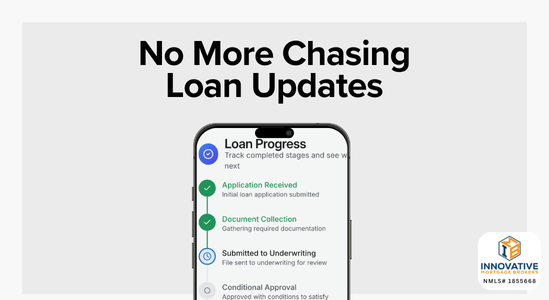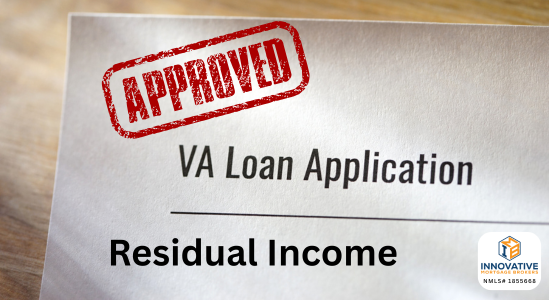Our new portal lets you securely check progress, milestones, and next steps anytime you want…
Beyond Traditional Lending: Bank Statement Mortgages in Pennsylvania

In the world of home financing, there’s a unique lending option that’s been gaining traction for a bit: the bank statement mortgage. This innovative mortgage product provides an alternative pathway to homeownership for those who might not qualify for a traditional mortgage. Here we will delve into the concept of bank statement mortgages and why it’s crucial to shop for a good lender when navigating the mortgage landscape, especially when it comes to this program.
What is a Bank Statement Mortgage
Bank statement mortgages are calculated differently than traditional mortgages. Instead of relying on W-2 forms or tax returns, lenders use bank statements to assess a borrower’s ability to repay the loan. The exact methodology can vary, but typically, lenders average your monthly gross income over the period of 12 or 24 months.
For certain bank statement loan programs, qualifying income may be calculated by totaling all deposits (minus any disallowed deposits) and dividing that amount by the number of months.
This approach provides an alternative for self-employed individuals, contractors, and business owners with complex income structures. It allows these borrowers to demonstrate their earning potential and financial stability in a way that might not be reflected through traditional income documentation.
Expense Factor
Expense factors play a significant role in bank statement mortgages. When assessing a borrower’s ability to repay, lenders not only look at the income shown on bank statements, but also consider the expenses associated with the borrower’s personal and business operations. This is often referred to as the expense factor or debt-to-income ratio (DTI).
The expense factor is usually represented as a percentage, which is calculated by dividing the borrower’s total monthly debts by their gross monthly income. In the context of a bank statement mortgage program, this could include business expenses, credit card payments, car loans, student loans, and the projected mortgage payment. The lower the percentage, the better the borrower’s chances of qualifying for the loan.
However, it’s important to note that the specific calculation methods and acceptable ratios can vary significantly between lenders. Some lenders may use a standard expense factor (such as 50%) for all bank statement loans, while others may adjust the factor based on the type of business or the borrower’s credit profile. This flexibility makes bank statement mortgages an attractive option for many self-employed individuals, but it also underscores the importance of working with a knowledgeable loan officer who can help navigate these complexities.
Guidelines
Bank statement loans, which fall under the category of Non-Qualified Mortgages (Non-QM), have guidelines that differ significantly from conventional loans following Fannie Mae and Freddie Mac guidelines. These loans cater to borrowers who cannot meet the standard guidelines of Agency or Qualifying Mortgages (QM)
The guidelines for bank statement mortgages can vary greatly from one lender to another. Each lender has their own set of criteria and methods for calculating income and assessing risk, which can make the process more complex.
Some lenders, for example, may require 12 months of bank statements, while others might require 24 months. The way income is calculated can also differ. Some lenders might consider only personal bank statements, while others may accept business bank statements. Furthermore, the acceptable debt-to-income ratio or expense factor can vary significantly among lenders as well.
This variability underscores the importance of shopping around and comparing different lenders when considering a bank statement mortgage. It’s also why working with a mortgage broker can be beneficial. A broker like Innovative Mortgage Brokers, for instance, can help navigate these differences, providing guidance and advice based on their experience with various lenders and their understanding of the unique needs and circumstances of borrowers. They can help find the lender and product that best fits your situation, potentially saving you time and money in the process.
The Benefits of Bank Statement Mortgages
Bank statement mortgages offer a number of perks:
- Ideal for Self-Employed Borrowers: Bank statement mortgages are designed for self-employed individuals or business owners who have a steady income but might not meet traditional lending criteria due to the nature of their income.
- Flexible Income Verification: Unlike traditional loans that require W-2 forms or tax returns for income verification, bank statement loans allow borrowers to demonstrate their income through their bank statements.
- Potential for Higher Loan Amounts: Since bank statement loans consider gross deposits as income, borrowers may qualify for higher loan amounts compared to traditional loans that use net income.
- No Tax Returns Required: Some lenders do not require income tax returns for bank statement loans. This can be beneficial for borrowers who write off a significant amount of expenses on their tax returns, reducing their taxable income.
- Customized Debt-to-Income Calculations: Lenders offering bank statement loans often have more flexible guidelines when it comes to calculating debt-to-income ratios, tailoring the calculation to the borrower’s unique financial situation.
- Access to Competitive Rates: Despite being non-traditional loans, bank statement mortgages can still offer competitive interest rates, especially for borrowers with good credit scores.
- Can Improve Homeownership Accessibility: For those who may not qualify for a conventional mortgage due to irregular income patterns, such as freelancers, contractors, or small business owners, bank statement mortgages can provide an alternative path to homeownership.
- Variety of Loan Types Available: Many lenders offer bank statement loans as fixed-rate mortgages, adjustable-rate mortgages, or even interest-only mortgages, giving borrowers plenty of options to choose from based on their needs and financial goals.
Why Choose Innovative Mortgage Brokers
Navigating the mortgage process can be complicated, especially when exploring options like bank statement mortgages and other Non-QM mortgage loan products. That’s where Innovative Mortgage Brokers comes in. If you are looking for a mortgage in Pennsylvania (PA) or Florida (FL), here are some reasons why you should consider our services:
Expertise and Experience
We have a team of experienced professionals who understand the intricacies of bank statement mortgages and Non-QM loans. We can guide you from the application process to closing, helping you understand the requirements and avoid potential pitfalls.
Tailored Solutions
Every borrower is unique, and so are their financing needs. At Innovative Mortgage Brokers we pride ourselves on offering personalized solutions that align with each client’s financial situation and homeownership goals.
Unmatched Customer Service
At Innovative Mortgage Brokers, customer satisfaction is paramount. Our team is dedicated to providing exceptional service, answering all your questions, and ensuring a smooth and efficient mortgage process.
Conclusion: Your Trusted Partner in PA Home Financing
Shopping for a mortgage in Pennsylvania doesn’t have to be stressful or confusing. With the right partner by your side, you can navigate the process with ease and confidence. Whether you’re considering a bank statement mortgage or any other home financing option, at Innovative Mortgage Brokers we ready to guide you every step of the way.
Remember, homeownership is a significant investment, and the choices you make can impact your financial future. So, choose wisely and ensure you have a trusted and competent team like Innovative Mortgage Brokers supporting you.




